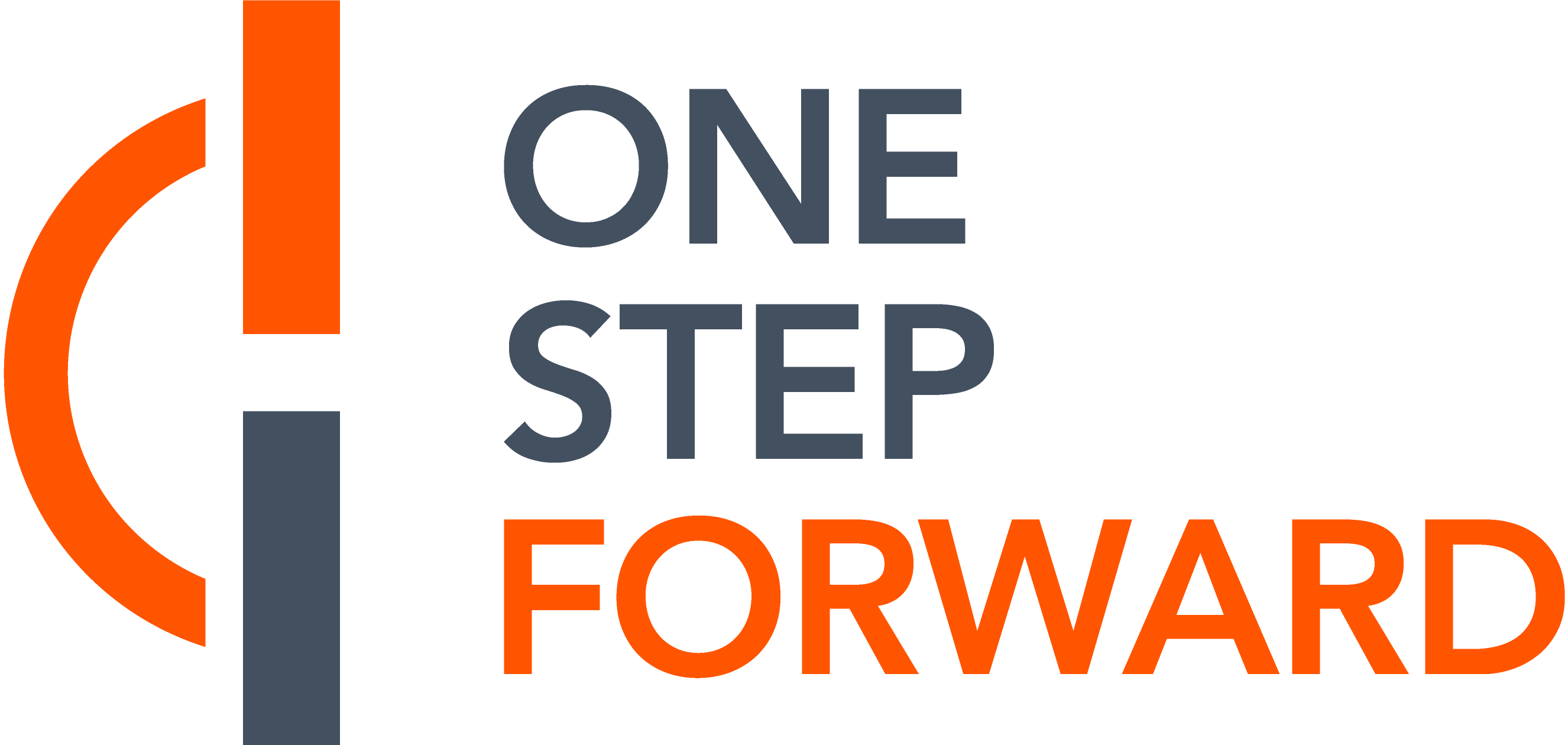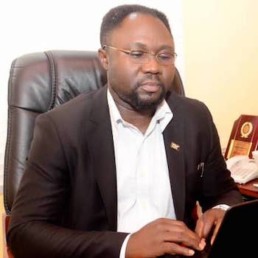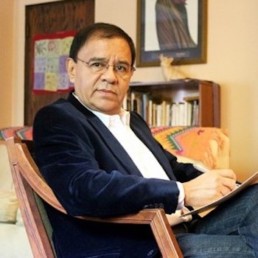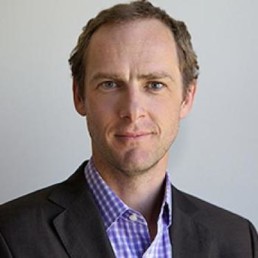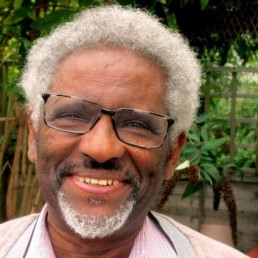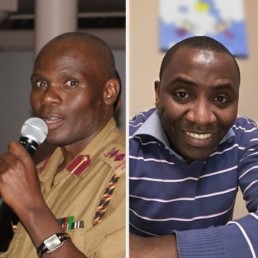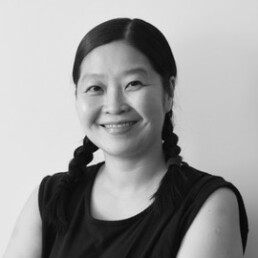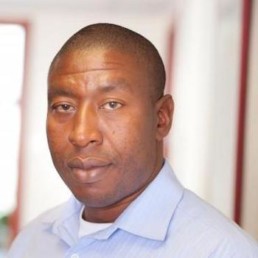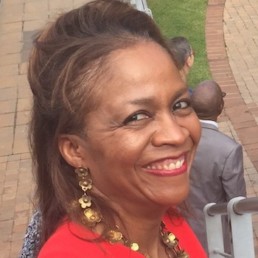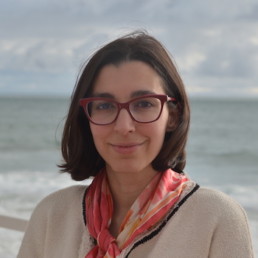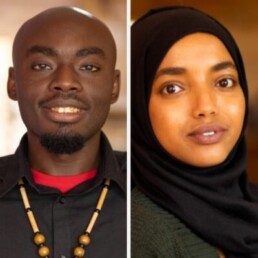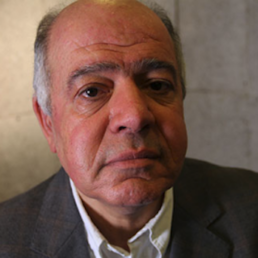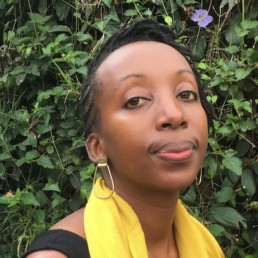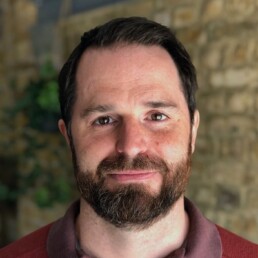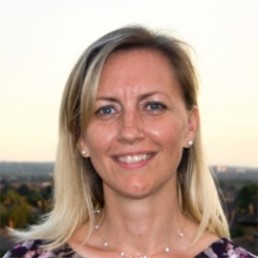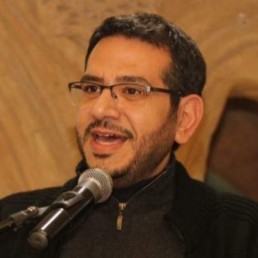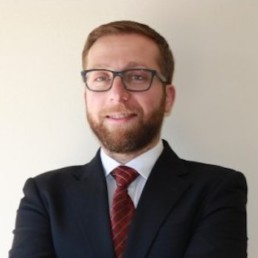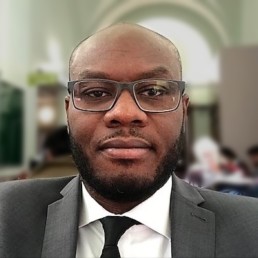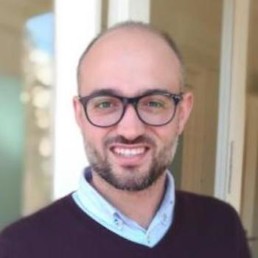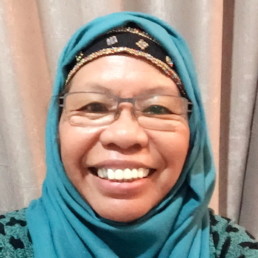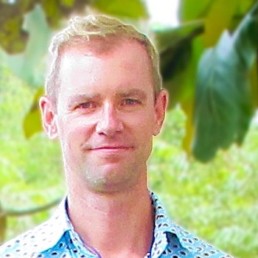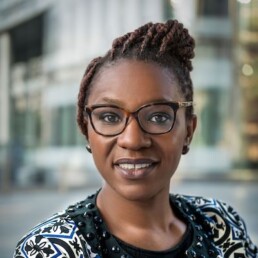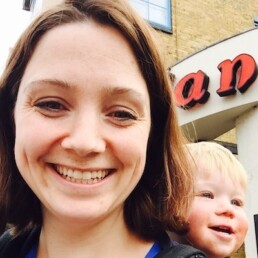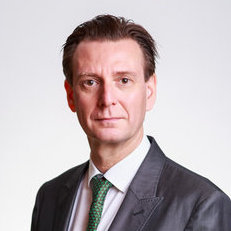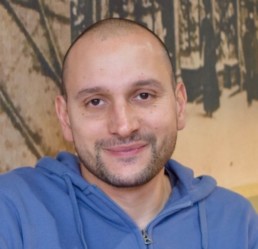#009: Helping the most marginalised to access key services in Nigeria | Ochonye Bartholomew Boniface
“It was a painful experience to watch him die an avoidable death because he did not want to be treated as less human. Because they didn’t show him the honour and respect that he deserved.”
Episode notes
“OBB” is a Nigerian public health professional and advocate who works with the LGBT population, drug users, sex workers, and the HIV-positive. Over the last 10 years he has been managing a large program for these key population groups, for Heartland Alliance International.
The work can only be described as a calling, in an often very difficult context. The Same Sex Marriage (Prohibition) Act of 2013 was a step in the wrong direction, and alongside this there is a great deal of pushback from cultural and religious institutions.
Topics discussed:
[02:05] Working to address stigma and discrimination for the LGBTQ population in Nigeria, including access to health and social care.
[12:15] Working with often-unsympathetic ministries and other central government stakeholders. Facilitating cultural change alongside engaging with technical challenges.
[19:45] First steps for starting up programmes in new contexts and new communities. Variations between different parts of Nigeria.
[25:15] OBB’s own story, and how he came to be an advocate for people marginalised by mainstream health and social care.
[30:20] Staying motivated in the transition from social work to managing an organisation, and losing most of his direct client contact. Major takeaways over 18 years working on these issues.
[38:30] Common mistakes in engaging with marginalised groups. Experiences in north-east Nigeria amidst the ongoing Boko Haram conflict.
[44:45] How to work effectively in a hostile policy environment. Dealing with a major setback in the form of the Same Sex Marriage (Prohibition) Act.
[57:00] OBB’s book recommendation, and a final word for organisations looking to support marginalised communities in contexts like Nigeria.
Related episodes
#008: Starting up a Haitian community foundation | Marie-Rose Romain Murphy
Episode notes
Marie-Rose founded ESPWA not long after the 2010 earthquake which killed some 200,000 people. This led into eight years of intensive support to community-driven planning, with particular focus on the Grand ‘Anse region.
We discuss the difficulties of building an inclusive platform in rural areas with little infrastructure and the usual rivalries; her own family’s heritage of political activism; and what it was like to encounter international institutions as the face of a Haitian organisation.
Topics discussed:
[02:05] Pivoting from community development in the United States to rural Haiti. Commonalities in how people can be politically and economically marginalised.
[10:45] Connecting with her family’s roots in political activism in Haiti. First steps in setting up a community foundation in the Grand ‘Anse region, in the wake of the 2010 earthquake.
[24:10] How to develop an inclusive platform in the Haitian context. Early difficulties in communicating this vision to local and international partners.
[35:25] The concentration of attention and resources in Port-au-Prince. Relief and reconstruction after the earthquake, and how this was seen from the Grand ‘Anse.
[40:25] Difficulties in dealing with international donors and multi-national charities. Encountering low levels of trust in Haitian leadership.
[54:55] How to make the community foundation sustainable. Where Marie-Rose wants to go after eight years working on these issues.
[1:05:00] Learning from an often-gruelling experience. The choice between the international development sector and a shark tank.
Related episodes
#007: Three decades as an Eritrean political refugee | Teame Mebrahtu
Episode notes
Teame teaches at the Graduate School of Education at the University of Bristol, and has consulted on education policy in a range of different countries.
He is an Eritrean who obtained political asylum in the United Kingdom in the late 1970s, completed his PhD there, and has been extraordinarily active in supporting refugees and international students.
For more you can find the biography Long Way from Adi Ghehad on Amazon.
Topics discussed:
[02:15] Early life in the village; school and political activism in Asmara. Doing his part in a very difficult situation.
[07:45] Going abroad for a PhD in the United Kingdom, obtaining political asylum during the Mengistu years in Ethiopia, and making it through graduate school by hook or by crook.
[12:00] Early efforts to broaden international understanding in Thatcher-era Britain. Talking about Eritrean culture with primary school students.
[16:00] Staying engaged with the Eritrean independence struggle; experiences with the rapid decline of post-independence government, and what can really be done under authoritarian regimes.
[27:15] Current prospects in Eritrea, with ongoing liberalisation in Ethiopia. What would really be required for the country to move forward.
[34:00] The role and responsibilities of a graduate institution in the rich world “looking southward”. How public institutions in the south can most usefully “look northward”.
[56:05] A few bad experiences as a refugee in the UK. The special background and potential of refugees despite that (occasional) negativity.
[1:04:45] Formative books and education experiences for Teame himself, over a very long career in teaching about education.
Related episodes
#006: Shifting the power in international development | Alex Martins
Episode notes
Alex is an independent researcher who strives to build better bridges between the global North and South, promoting constructive dialogue and putting power imbalances higher on the agenda than they currently sit.
This is a tough ask in a sector that is pretty much defined by imbalances — between those who pay, and those who are supposed to benefit. And that also has its more than its share of old-fashioned attitudes to human resources.
For more you can find Alex’s personal website at: https://www.alexmartinsdev.com/
Topics discussed:
[02:20] The life of a consultant researcher. Complicated accents that attract gentle mockery no matter where you are.
[07:00] Early days in the development sector. Bottom-up and top-down perspectives, and seeing structural challenges and disparities.
[17:00] Barriers to entry and advancement in the development sector for people from the global South.
[22:00] How “expertise” is defined and produced, the real role and importance of formal qualifications, and the place of economics in development.
[34:15] Possible approaches to amplify the voice of “southern” interlocutors in the policy conversation.
[37:00] The intersection of the #AidToo moment with broader structural inequalities in the development sector.
[47:45] How women are impacted differently by structural problems. The need for the development sector to modernise its human resources practices. The role of so-called “national staff”.
[55:30] Unconscious biases, and “markers” that we tend to apply to the disadvantage of particular groups. Practical steps to remedy this.
[1:03:00] Barriers to constructive critique and activism in the aid sector. The different kinds of fears and risks that people face, depending on where they sit.
Related episodes
#005: Three decades treating torture survivors | Mario Gonzales
Episode notes
Mario is a clinician and psychotherapist, who first started working with Guatemalan immigrants to the USA in the early 1990s.
These days he’s clinical supervisor at the Marjorie Kovler Centre in Chicago (link), a part of the Heartland Alliance. He works with people claiming political asylum, and helps on initiatives elsewhere around the world.
We discuss the personal journey of thirty years’ work with thousands of severely traumatised people, what works in rebuilding resilience, and the gradual growth of the field.
Topics discussed:
[02:30] Mario’s work with survivors of torture, and how they can rebuild and move on with their lives. How people react to his job when he meets them socially.
[11:20] How to reach people across cultural and language divides. Finding cultural and spiritual resources to build resilience.
[22:15] Application of the Kovler Center’s approach in Guatemala, Colombia, and other contexts where resources for this kind of work are not abundant.
[27:00] How psychotherapy can work for people who have had their trust in people and institutions destroyed. What the first steps look like.
[37:00] How Mario manages the cumulative stress of dealing with thousands of cases of torture. How to balance genuine empathy with self-care over the long term.
[46:15] The evolution of the field over thirty years, from modest beginnings to its present state. Mario’s key intellectual and practical influences.
#004: Challenging abusive extractive industries in Zimbabwe | Farai Maguwu
Episode notes
Farai is director at the Centre for Natural Resources Governance in Zimbabwe (link), and works to empower communities for whom an abundance of natural resources has brought nothing but trouble.
He has attracted considerable international recognition in this role, but this is a slightly more personal story about the journey into human rights advocacy and community organising.
Topics discussed:
[02:00] Human rights abuses around natural resources exploitation in Zimbabwe. Farai’s work at home and abroad.
[11:00] The perverse effects of natural resources for poor communities, and the limits of responsible sourcing initiatives like the Kimberly process.
[17:00] How Farai came to work in this area. The journey from reaction to pro-action, and building a sustainable community movement.
[25:00] Lessons from a decade-plus of activism in a repressive political climate. The ethical and practical pitfalls of engaging with the Zimbabwean government.
[30:20] Some international influences and inspiration for effective activism around natural resources, including human rights advocacy and “better-governed” countries.
[39:00] The frustrations of community advocacy in a hostile political environment, and staying motivated despite little tangible progress.
[49:30] How to help enable communities to speak for themselves, in an environment where political speech has been actively supressed for a generation.
[55:10] Advice for international institutions that are concerned with natural resources exploitation, if they want to responsibly contribute in situations like Zimbabwe.
#003: Tracking mineral trafficking & armed groups in the DRC | Dan Fahey
Episode notes
Dan spent several years with the “Group of Experts” in the Democratic Republic of the Congo.
These are people tasked by the UN Security Council to work out what is really going on with sanctions, armed groups, and smuggling. The approach has generally been low profile, but became somewhat infamous with the murder of two of Dan’s successors in Kasai province in 2017.
At a practical level it’s an immensely important role that is a “force multiplier” for effective diplomatic, security and aid intervention, and we unpack how it works from several different directions.
Topics discussed:
[02:15] How Dan went from the U.S. Navy to investigating mineral smuggling and armed groups in central Africa, by way of a PhD.
[10:45] Following the supply chain for illegally traded gold on foot, from the bush in DRC to the black market in Kampala
[16:50] When we don’t have the right information. Failures to “ground truth” our beliefs about fragile places; the mysterious tale of “Mr X” and the ADF in North Kivu.
[24:45] When we have the right information, but can’t or won’t use it. The frustrations of faith-based policy, and narrow self-interest, in the Congo and in UN peace operations.
[30:50] The trade-offs of stepping back from field research, to a more stable role. Knowing when it was time to step back as the security risks for the Group of Experts accumulated.
[36:20] The true costs of not understanding the context in which we’re intervening, versus the narrow operational costs of security management. The UN dropping the ball in Ituri despite a huge initial investment of resources.
[49:00] What we can change at a system level to improve knowledge of the terrain when undertaking large interventions like a peace operation. How to ground truth assumptions and theories of change.
[57:45] What academics get right and wrong about research in unstable and violent places. Some amazing work versus speculation from afar.
[1:04:25] Dan’s book on his time with the Group of Experts. Why we need more practitioner accounts of peace-making interventions.
#002: Human rights research in central Africa | Lewis Mudge
Episode notes
Lewis is a researcher and advocate who’s worked in some of the toughest environments around over the last decade, often in the immediate aftermath of war crimes and crimes against humanity.
This interview touches on the Democratic Republic of the Congo, the Central African Republic, Rwanda, and Burundi.
We get into both the practicalities of “doing” human rights, and the personal journey that’s entailed.
Topics discussed:
[03:15] How Lewis talks about his job, people’s reactions, and the limited presence of Central Africa in the Western imagination
[05:55] Working with community radio in the DR Congo, the advantages of lax security rules, and the “flag raising racket”
[12:55] Why Human Rights Watch was appealing as a next step, what the day-to-day looked like, and why it remains “fascinating” ten years later
[21:00] Keeping a sense of optimism and/or perspective despite unambiguously bad trends in the DRC, CAR and Burundi.
[29:30] A walk-through a few career “highlights” with investigation and advocacy in Burundi and the C.A.R.
[35:25] What it takes to have longevity in the human rights sector.
[39:00] Hopes and disappointments in the Central African Republic over the last five years, what did and didn’t go right.
[47:25] Stories from the road in C.A.R. and the criticality of encountering different perspectives, especially ones that don’t usually get captured.
[1:03:50] Constructing a sustainable career in human rights, navigating changes in responsibilities, and pulling back from front-line research and advocacy.
Related episodes
#001: Managing humanitarian responses in extremis | Tariq Riebl
Episode notes
Tariq has led teams on the ground in most of the major disasters of the last decade, with agencies including Oxfam, Médecins sans frontières, AfghanAid and the International Rescue Committee.
These are the highest-pressure management environments one can imagine, and this is a pretty wide-ranging conversation on professional practice and ethics in the humanitarian sector.
What we talk about:
[02:15] A career trajectory in emergency response, from beginnings in Afghanistan, through central and west Africa, to Yemen and Iraq. The advantages of learning the ropes in a small and locally-led organisation.
[05:00] The initial appeal of working on major emergencies, and early experiences. How humanitarian agencies recruit and manage people. The advantages and disadvantages of the MSF model.
[09:30] The limits of localisation and why the big humanitarian agencies remain relevant. How to lead in a “surge” where there’s a need to move quickly, and little clear guidance. Losing patience with ego-driven management.
[13:15] “The greatest job that he ever had”. A career highlight in Yemen, scaling up operations under high-intensity bombing.
[15:45] Career lowlights. Resigning due to unethical behaviour, and the standards that must be maintained for humanitarian action.
[18:30] Management principles for unpredictable operating environments. The humanitarian sector’s tendency to under-value professional management, and to under-invest in it.
[25:30] Key mentor figures, including an early colleague in Afghanistan.
[29:00] What comes next, after fifteen years in major emergencies. The lack of sustainable career paths in the humanitarian sector, and the price that individuals pay for that.
